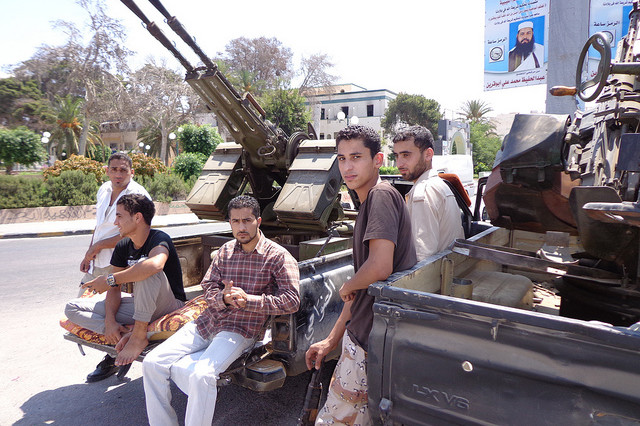Has the apparent overthrow of Muammar Qaddafi’s regime in Tripoli vindicated NATO’s decision to back the rebels? Notwithstanding the flood of facile commentary claiming vindication over Libya war skeptics, it remains too early to tell. And although I myself was (very hesitantly) in favor of aiding the rebels in the days when Qaddafi’s forces were closing in on Benghazi, it’s worth remembering that many of the skeptics’ reasons for opposing the Libya campaign had little to do with the question of whether or not it would ultimately bring down Qaddafi.
The fact that the war helped put Obama’s seal of approval on the American practice of going to war surreptitiously, without congressional approval or public accountability — as well as the possibility that perceived success in Libya might make the U.S. more reckless in intervening in the future — are both potential pitfalls that have little to do with the outcome of action on the ground. And that’s before we even speculate about whether the rebels’ victory will prove to be conclusive, or what Libya’s next government will look like.
This is not to deny that the fall of Qaddafi’s regime is good news — it is. But we should be very cautious about drawing sweeping conclusions or claiming vindication at this early stage, particularly in light of the disasters that followed the fall of Saddam Hussein and the Taliban.
There is, however, one line of argument that I think we can confidently say has been discredited by the recent events in Tripoli. This is the argument — particularly common among leading neoconservative hawks who wanted to criticize Obama without lending support to “isolationism” — that the apparent stalemate in Libya demonstrated that Obama had been insufficiently assertive, and should have opted for a more forceful intervention. (This was also the position of the more hawkish Republican presidential candidates like Romney, Perry, and Santorum.)
At the moment, it seems clear that the upside of an American intervention with a heavier footprint, namely the possibility of shortening the war by a few months, would have been far outweighed by the downside. Not only would such an intervention have put U.S. troops on the ground at risk, it also would have risked discrediting Qaddafi’s opponents: imagine how much less legitimacy the post-Qaddafi government of Libya would enjoy if Tripoli had fallen to American tanks rather than to the rebels themselves.





Love your last paragraph.